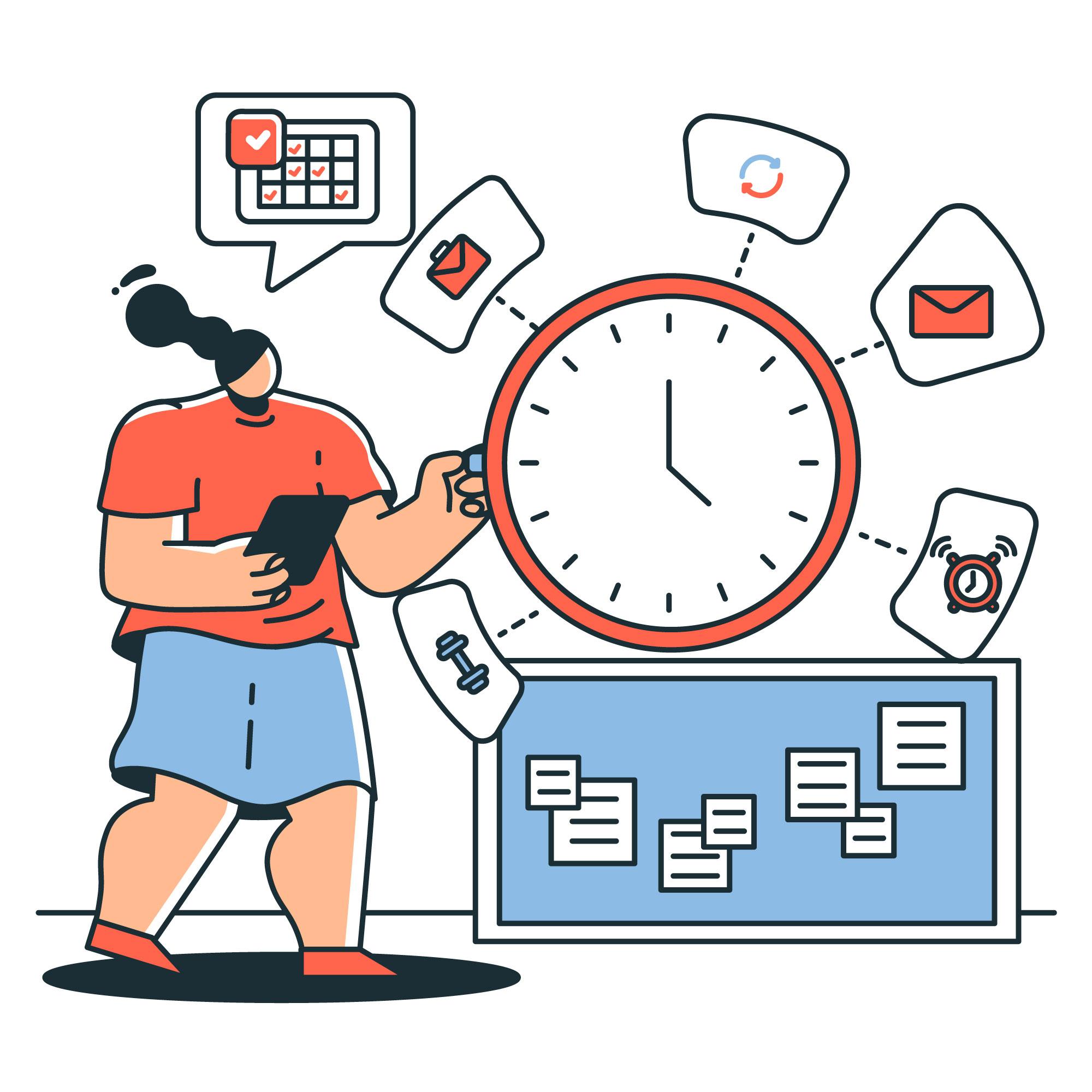Time Tracking 101: Discover the Perfect App for YOU
Contents
Unveiling the Time Tracking Toolbox: Finding the Right Fit for Your Productivity

Feeling overwhelmed by the sheer number of time tracking apps out there? You're not alone. Each promises unique features and benefits, but how do you know which one truly serves your needs? As a productivity expert, I'm here to demystify the options and help you find the perfect fit.
Forget complex jargon and feature overload. Think of time tracking apps as tools built to boost your efficiency and understanding of your workday. But before you dive in, consider what information you really need to capture.
Are you looking for a simple timer to track project hours? Basic built-in apps or free web-based tools might suffice. These are great for freelancers or solopreneurs who just need a quick way to log time spent on tasks.
Do you crave deeper insights into your activities? More advanced apps can capture data like active applications, mouse clicks, and even keystrokes. This can be helpful for identifying productivity bottlenecks or understanding how you spend your time across different work categories, like communication or writing.
Think collaboration is key? If you work in a team, look for apps with features like shared timesheets and project reports. This allows everyone to stay on the same page and streamline billing or project management.
Remember, security matters. When it comes to capturing personal data, opt for reputable apps with clear privacy policies. Native desktop apps generally offer better security than those built with frameworks like Electron.
As we explore different app types in the next section, keep your key needs and security preferences in mind. Trust me, with the right tool in your arsenal, time tracking can become your secret weapon for boosting productivity and achieving your goals!
Navigating the App Landscape: Finding Your Time Tracking Match
Now let's delve into the three main app categories:
1. Web-Based Tracking: Simplicity with Limits
Think of web-based trackers as the digital equivalent of a stopwatch. They're simple to set up and secure, often integrated directly into web apps. But remember, simplicity comes at a cost. They primarily track time spent on tasks within the web app itself, offering little insight into your broader workflow. Browser information, system events, and detailed activity monitoring are off-limits.
Ideal for: Those who need basic time tracking within web applications and value security above all else.
Examples: Harvest, Clockify, Toggl Track (web version)
2. Browser Plugins: Deeper Dive, Cautious Steps
These go beyond the web app window, peering into browser activity like visited URLs and window titles. This provides richer insights, but be mindful of potential security concerns. Browser plugins request permissions, so choose them carefully and prioritize those with strong privacy practices.
Ideal for: Users who primarily work in web browsers and want more than just basic time tracking, understanding the trade-off for potential security considerations.
Examples: RescueTime, TrackItLater, Everhour
3. Desktop Applications: Powerhouse Performance, Security Awareness
Desktop apps are the heavyweights of time tracking, offering granular insights into your entire system activity. From active applications and window titles to keystrokes and mouse clicks, they paint a detailed picture of your workday. This power comes with responsibility, so choose apps from reputable providers with robust security measures.
Ideal for: Power users who crave deep-dive insights and detailed analysis, understanding the need for responsible security practices.
Examples: TimeDoctor, actiTIME, Hubstaff, Toggl Track (desktop app)
Remember, the perfect app is the one that aligns with your needs and comfort level. Experiment with different categories and features to find the sweet spot that boosts your productivity without compromising your security.
Tip: Native desktop apps generally offer better security than those built with frameworks like Electron. Research app security practices before committing.
Desktop vs. Mobile Apps: Choosing Your Tracking Platform
When it comes to choosing a time tracking app, the battleground often lies between your trusty desktop and your handy mobile device. Each platform offers unique advantages, so understanding their strengths and limitations is crucial.
Desktop Apps: Dive Deep into Your Workday
Think of desktop apps as the Sherlock Holmes of time tracking. They possess the power to capture a wealth of system data, from active applications and window titles to mouse clicks and even keystrokes. This granular level of detail can be a game-changer for productivity analysis, revealing hidden patterns and uncovering areas for improvement.
Benefits:
- Unparalleled depth: Dive deep into what actually consumes your time.
- Multitasking insights: Understand how you switch between tasks and applications.
- Offline tracking: Work uninterrupted even without an internet connection.
Considerations:
- Limited mobility: Tracking on-the-go might require additional setup.
- Potential security concerns: Choose established providers with robust security measures.
Mobile Apps: Track on the Go, Insights in Your Pocket
Mobile apps bring the convenience of time tracking wherever you are. Not only can they log your time spent on different activities, but they can also leverage your phone's features like geolocation to understand your context. Imagine tracking time spent at client meetings or conferences right from your phone!
Benefits:
- Ultimate portability: Track your time anywhere, anytime.
- Location-based insights: Understand how your work activities vary across different locations.
- Seamless integration: Many mobile apps sync with their desktop counterparts for a unified experience.
Considerations:
- Limited data capture: They primarily track time spent in the app itself, not system-wide activity.
- Battery drain: Frequent use can impact your phone's battery life.
- Security awareness: Be mindful of app permissions and choose those with strong privacy practices.
Remember, the ideal platform depends on your needs. If you primarily work at your desk and crave detailed insights, desktop apps reign supreme. For those who value flexibility and location-based tracking, mobile apps offer a powerful complement. Don't be afraid to experiment with both to find the perfect fit for your unique workflow!
Choosing Your Time Tracking Champion: Conclusion and Recommendations
The ideal app seamlessly integrates into your workflow, empowers productivity, and aligns with your security preferences.
Here's a final recap to guide your choice:
1. Define Your Needs:
- Basic tracking: Web-based solutions or built-in OS apps like Clock app (Windows/Mac) are sufficient.
- Detailed insights: Opt for desktop apps, prioritizing native versions for better security.
- Browser-centric work: Browser plugins offer valuable insights, but choose them cautiously with security in mind.
2. Consider Security:
- Prioritize apps with robust security measures and established reputations.
- Native desktop apps generally offer better security than Electron-based ones.
- Be mindful of permissions requested by browser plugins.
3. Experiment and Explore:
- Don't be afraid to try different categories and features to find your perfect fit.
- Explore free trials or demos to get a hands-on feel before committing.
Bonus Tip: Combine tools! Leverage different app categories based on your needs. Use a lightweight web-based tracker for everyday tasks and a powerful desktop app for deep-dive projects.
Remember, time tracking is a journey, not a destination. Adapt and refine your choice as your needs evolve. With the right tool by your side, you'll unlock a world of enhanced productivity and self-awareness, empowering you to achieve your goals and conquer your workday!
Happy tracking, and may your time be well spent!
